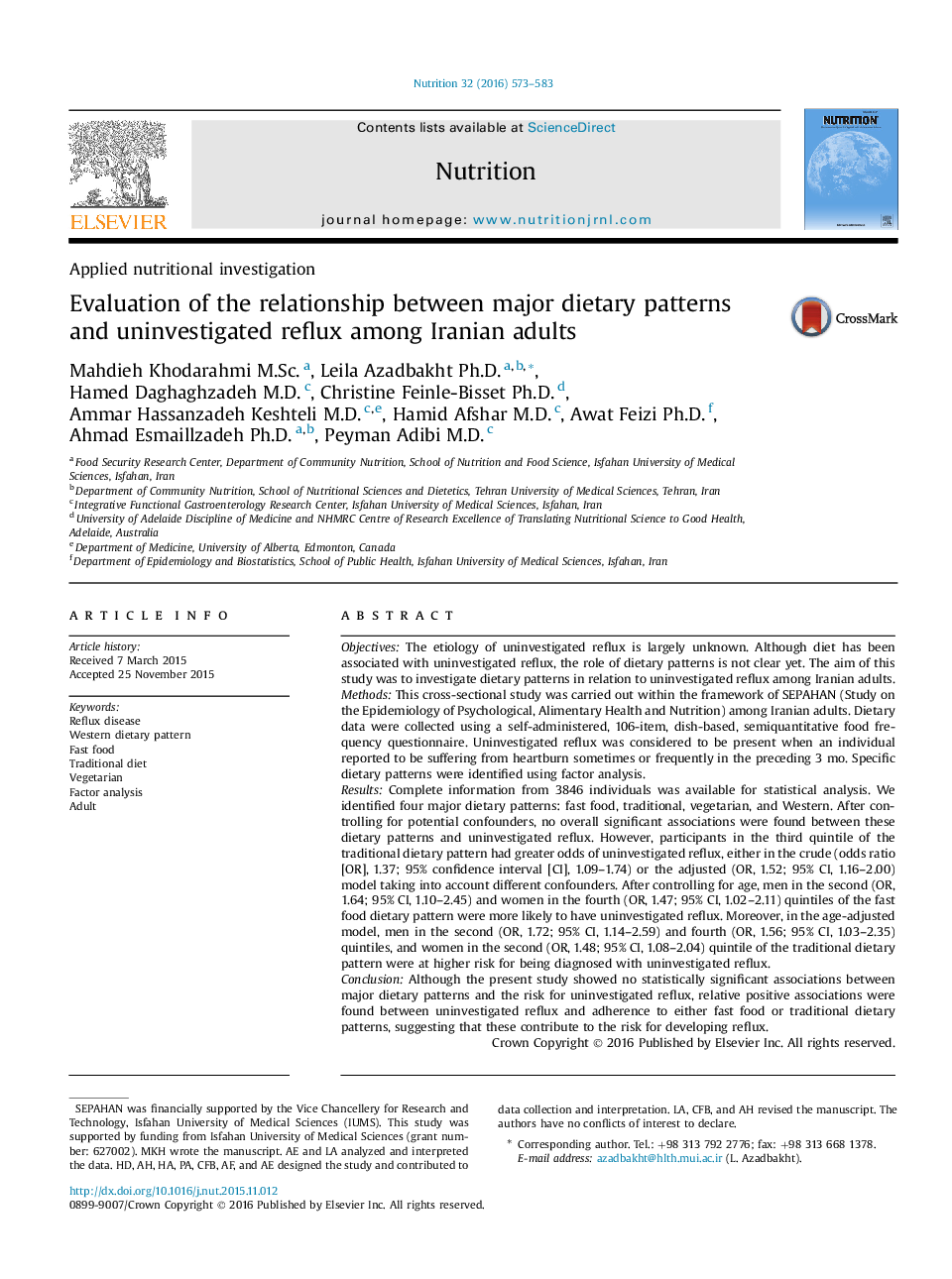| کد مقاله | کد نشریه | سال انتشار | مقاله انگلیسی | نسخه تمام متن |
|---|---|---|---|---|
| 3276253 | 1208541 | 2016 | 11 صفحه PDF | دانلود رایگان |
• We identified four major dietary patterns in the study population of adult Iranians: traditional, vegetarian, fast food, and Western.
• Findings from the present study suggested that both traditional and fast food dietary patterns may promote the risk for uninvestigated reflux in this population.
• These associations appear to be independent of sex and body mass index status.
• The exact associations between major dietary patterns and uninvestigated reflux need to be confirmed in prospective studies.
ObjectivesThe etiology of uninvestigated reflux is largely unknown. Although diet has been associated with uninvestigated reflux, the role of dietary patterns is not clear yet. The aim of this study was to investigate dietary patterns in relation to uninvestigated reflux among Iranian adults.MethodsThis cross-sectional study was carried out within the framework of SEPAHAN (Study on the Epidemiology of Psychological, Alimentary Health and Nutrition) among Iranian adults. Dietary data were collected using a self-administered, 106-item, dish-based, semiquantitative food frequency questionnaire. Uninvestigated reflux was considered to be present when an individual reported to be suffering from heartburn sometimes or frequently in the preceding 3 mo. Specific dietary patterns were identified using factor analysis.ResultsComplete information from 3846 individuals was available for statistical analysis. We identified four major dietary patterns: fast food, traditional, vegetarian, and Western. After controlling for potential confounders, no overall significant associations were found between these dietary patterns and uninvestigated reflux. However, participants in the third quintile of the traditional dietary pattern had greater odds of uninvestigated reflux, either in the crude (odds ratio [OR], 1.37; 95% confidence interval [CI], 1.09–1.74) or the adjusted (OR, 1.52; 95% CI, 1.16–2.00) model taking into account different confounders. After controlling for age, men in the second (OR, 1.64; 95% CI, 1.10–2.45) and women in the fourth (OR, 1.47; 95% CI, 1.02–2.11) quintiles of the fast food dietary pattern were more likely to have uninvestigated reflux. Moreover, in the age-adjusted model, men in the second (OR, 1.72; 95% CI, 1.14–2.59) and fourth (OR, 1.56; 95% CI, 1.03–2.35) quintiles, and women in the second (OR, 1.48; 95% CI, 1.08–2.04) quintile of the traditional dietary pattern were at higher risk for being diagnosed with uninvestigated reflux.ConclusionAlthough the present study showed no statistically significant associations between major dietary patterns and the risk for uninvestigated reflux, relative positive associations were found between uninvestigated reflux and adherence to either fast food or traditional dietary patterns, suggesting that these contribute to the risk for developing reflux.
Journal: Nutrition - Volume 32, Issue 5, May 2016, Pages 573–583
